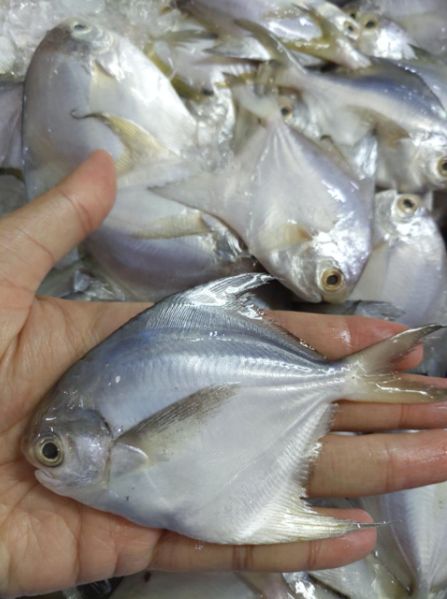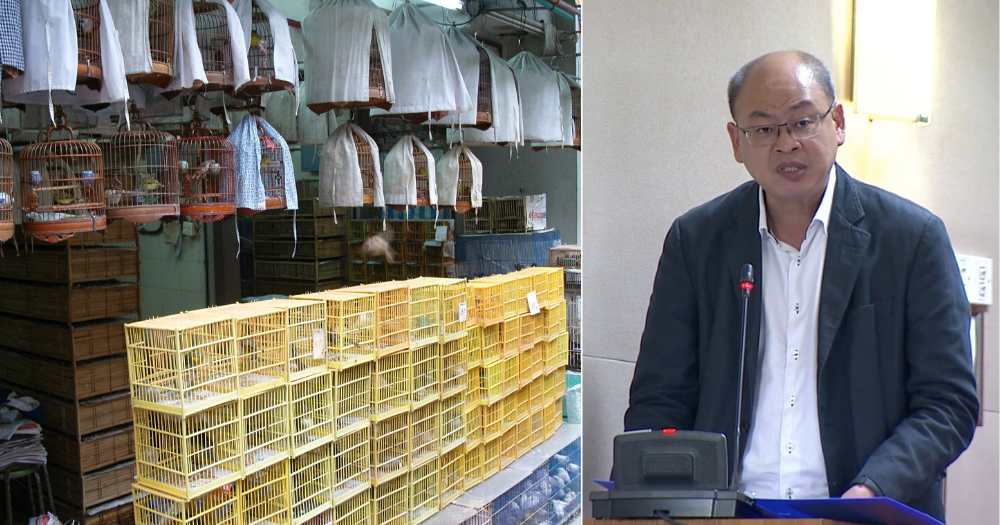Member of Parliament (MP) at Chua Chu Kang GRC, Yee Chia Hsing, brought up inhumane ways in which wild birds are caught for the bird trade, during the passing of the Wild Animals and Birds (Amendment) Bill in parliament on Mar. 25.
While harsher penalties for poaching and pigeon feeding were passed under the amended Wildlife Act, more can be done to enhance the surveillance efforts which was brought up by Yee in Parliament.
Introduce micro-chipping in bird trade
Yee suggested to micro-chip birds that are sold legally in the market so as to stem off illegal bird trade.
In his speech, Yee highlighted the lack of traceability in the bird trade, which encourages the illegal import and smuggling of birds into Singapore.
He recalled coming across a bird that was smuggled into Singapore and placed in a bird shop and "it is impossible to differentiate a bird imported legally versus another imported illegally".
While the Ministry of National Development (MND) has introduced micro-chipping for dogs to improve traceability and prevent illegal puppy mills, such a measure has not been introduced for birds sold as pets.
Yee also asked for MND to consider adopting the IUCN Red List to regulate the caged bird trade.
"Our demand for wildlife fuels the supply": Yee
While illegal poaching of wild birds in Singapore is low in Singapore, the nation imports birds from Southeast Asian countries, such as Indonesia, Malaysia, Thailand and Vietnam, according to this study.
Yee highlighted the inhumane methods in which birds are poached from the wild:
"[...] most birds are caught by poachers deploying very inhumane methods to catch their prey. One of the destructive techniques they engage involve applying tar glue on tree branches, which ends up trapping other birds or female specimens of target species."
Although Singapore might be considered as “one of the most wildlife-friendly cities on earth”, the demand from consumers in Singapore for songbirds or other pet birds can fuel the illegal wildlife trade in our neighbouring countries.
According to a report from TRAFFIC, a non-governmental organisation (NGO) working on wildlife trade, 73 percent of birds found in local bird shops were non-native and come from Southeast Asia, the Indian subcontinent, and even as far as Central and South America.
While songbird-keeping is a pastime that is entrenched in local culture and tradition in Southeast Asia, demand from those who buy and keep songbirds has driven the illegal capture and trade of wild birds in the region, according to TRAFFIC.
Illegal bird trade is recognised as the primary threat for many species in Southeast Asia.
Yee drew on this point and mentioned that the typical Singapore consumer has a much higher purchasing power than our counterparts in neighbouring countries.
He added that:
"What we allow our consumers to buy, affects the wildlife in our region. Our demand for wildlife fuels the supply."
Regulating consumer demand for fish
Beyond regulating consumer demand in the bird trade, Yee urged for the regulation of the import and sale of juvenile fish.
He has personally seen baby pomfrets, a type of fish, which are smaller than the size of his palm being sold.
 Photo by Yee Chia Hsing
Photo by Yee Chia Hsing
He explained that if juvenile fish are not given the chance to grow, it would lead to a decline in many fish species.
While he acknowledged that this is a problem that can't be solved by Singapore alone, he mentioned that "by disallowing the sale of juvenile fish, we are sending a strong signal and reducing the incentive for the catching of juvenile fish".
He ended his speech by saying that it was unfortunate that "human beings have become the most destructive species on earth" and hopes that Singapore can set a good example to the world on how to make the world a better place for all species.
What's been done to prevent illegal bird trade in S'pore
Senior Parliamentary Secretary for National Development and Home Affairs, Sun Xueling, responded to Yee on how the National Parks Board (NParks) ensures traceability in the bird trade.
Sun agreed with Yee that stopping the illegal import and smuggling of pet birds is an important endeavour and went on to explain NParks' measures on dealing with illegal bird imports.
According to Sun's speech, NParks works closely with the Singapore Customs and international partners to prevent illegal bird trade.
As pet bird shops are licensed by NParks, they are required to comply with certain licensing conditions, such as having information about the source, date of arrival, and date of purchase of each bird in the shop, said Sun.
In addition, pets shops are required to have permits for species listed on the Convention on International Trade in Endangered Species of Wild Fauna and Flora (CITES).
Sun added that NParks also conducts checks on pet bird shops to ensure that bird shops are compliant with the rules.
Mindful of trade-offs in adding regulations on food supply
As for curbing the import and sale of juvenile fish, Sun responded that this is not something Singapore can address on its own.
She mentioned that "it is really up to individual countries to manage their own fish stocks sustainably" and added that imposing additional regulations on our food supply has its own trade-offs that we should be conscious of.
She ended her response by highlight that this issue on curbing the import and sale of juvenile fish would be better addressed by the Ministry of the Environment and Water Resources and the Singapore Food Agency.
Top photo via shankar s/Flickr and screenshot via CNA's website
If you like what you read, follow us on Facebook, Instagram, Twitter and Telegram to get the latest updates.
